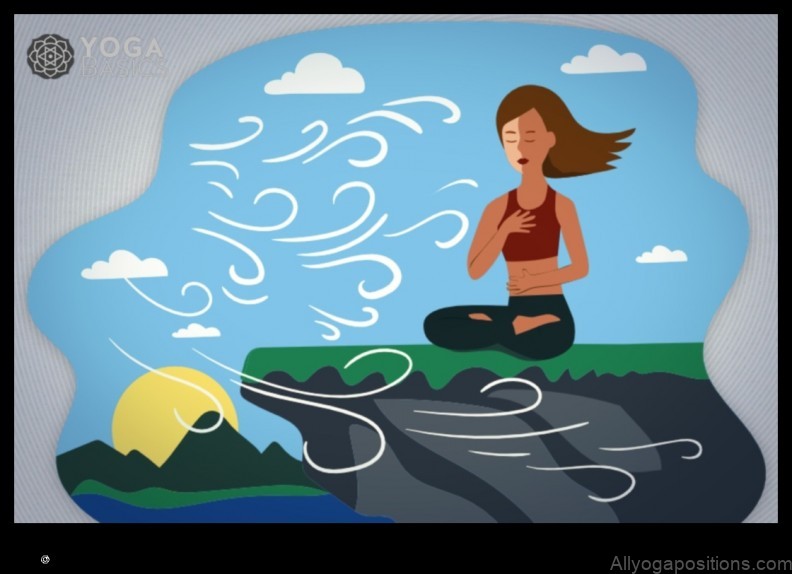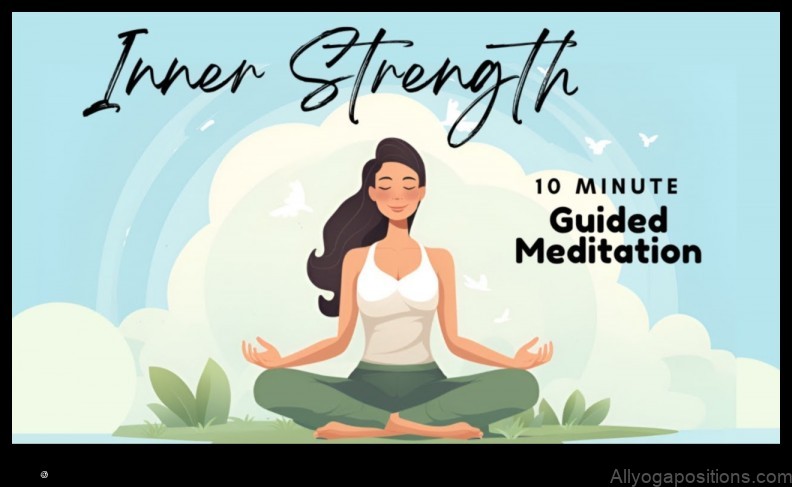
Meditation and Resilience: Building Inner Strength
Meditation is a practice that has been shown to have a number of benefits for both physical and mental health. It can help to reduce stress, anxiety, and depression, and it can also improve focus, concentration, and creativity.
In this article, we will explore the relationship between meditation and resilience. We will discuss how meditation can help to build inner strength and how it can help us to cope with stress and adversity. We will also provide tips for beginners who are interested in starting a meditation practice.
## What is meditation?
Meditation is a mind-body practice that involves focusing on the present moment. It can be done in a variety of ways, but most meditation practices involve sitting in a comfortable position and focusing on your breath.
As you focus on your breath, you will begin to notice your thoughts and emotions. When you notice a thought or emotion, simply let it go and return your attention to your breath.
Meditation can be a challenging practice, but it is also very rewarding. With regular practice, you will begin to develop a greater sense of awareness and control over your thoughts and emotions. This can lead to a number of benefits for your physical and mental health.
## How does meditation help with resilience?
Meditation can help to build resilience in a number of ways. First, meditation can help to reduce stress and anxiety. When you are stressed or anxious, your body goes into “fight or flight” mode. This is a natural response to danger, but it can also be harmful if it is triggered by everyday stressors.
Meditation can help to calm the nervous system and reduce the production of stress hormones. This can help you to feel more relaxed and in control of your emotions.
Second, meditation can help to improve your focus and concentration. When you meditate, you are training your mind to focus on the present moment. This can help you to stay focused on your tasks and goals, even when you are faced with distractions.
Third, meditation can help to improve your emotional regulation. When you meditate, you learn to observe your thoughts and emotions without judgment. This can help you to develop a greater understanding of yourself and your emotions. It can also help you to manage your emotions in a healthy way.
Fourth, meditation can help to increase your self-awareness. When you meditate, you become more aware of your thoughts, emotions, and bodily sensations. This can help you to make more informed decisions and choices.
Fifth, meditation can help to connect you with your inner strength. When you meditate, you create a space for yourself to relax, reflect, and connect with your true self. This can help you to tap into your inner strength and resilience in times of need.
## Benefits of meditation for resilience
Meditation has been shown to have a number of benefits for resilience, including:
- Reduced stress and anxiety
- Improved focus and concentration
- Improved emotional regulation
- Increased self-awareness
- Greater connection with your inner strength
These benefits can help you to cope with stress and adversity more effectively. They can also help you to live a more fulfilling and meaningful life.
## How to meditate for resilience
If you are new to meditation, it is a good idea to start with a simple practice. Here are a few tips for
| Topic | Feature |
|---|---|
| Meditation | A practice that involves focusing the mind on a particular object, thought, or activity to achieve a state of calmness or awareness. |
| Resilience | The ability to withstand or recover from difficult situations. |
| Inner strength | The ability to cope with challenges and maintain a positive outlook on life. |
| Mindfulness | A state of awareness in which one is focused on the present moment and non-judgmental of thoughts and feelings. |
| Stress management | The ability to cope with stress in a healthy way. |

II. What is meditation?
Meditation is a mind-body practice that involves focusing the attention on a particular object, thought, or activity. It has been practiced for centuries in various cultures for its ability to promote relaxation, reduce stress, and improve focus.
There are many different types of meditation, but most involve sitting in a comfortable position and focusing on your breath or a mantra. As you focus, you let go of any thoughts or feelings that come up, allowing your mind to rest.
Meditation can be practiced for as little as a few minutes or for longer periods of time. It is generally recommended to practice meditation at least once a day, but even a few minutes of meditation can have a positive impact on your well-being.
III. How does meditation help with resilience?
Meditation has been shown to have a number of benefits for resilience, including:
- Reduced stress and anxiety
- Improved mood and well-being
- Increased focus and concentration
- Improved sleep
- Enhanced creativity
- Increased self-awareness
- Greater emotional regulation
These benefits can help people to cope better with stress, challenges, and adversity. They can also help people to bounce back from setbacks and to achieve their goals.
In addition, meditation can help people to develop a stronger sense of self-compassion and acceptance. This can help them to be more resilient in the face of criticism and setbacks.
Overall, meditation is a powerful tool that can help people to build resilience and to live more fulfilling lives.

IV. Benefits of meditation for resilience
Meditation has been shown to have a number of benefits for resilience, including:
- Reduced stress and anxiety
- Improved mood and well-being
- Increased focus and concentration
- Enhanced creativity
- Improved sleep
- Greater emotional regulation
- Increased self-awareness
- Enhanced problem-solving skills
These benefits can help people to cope more effectively with stress, challenges, and adversity. They can also help people to live more fulfilling and meaningful lives.
V. How to meditate for resilience
There are many different ways to meditate, but there are some basic principles that all forms of meditation share.
First, it is important to find a comfortable position to sit in. You can sit on a chair, on the floor, or even in bed. If you are sitting on a chair, make sure your feet are flat on the floor and your back is straight. If you are sitting on the floor, you can cross your legs or sit in a kneeling position.
Once you are comfortable, close your eyes and focus on your breath. Inhale slowly and deeply through your nose, and exhale slowly and completely through your mouth. As you breathe, try to clear your mind of all thoughts. If you find your mind wandering, gently bring your attention back to your breath.
Continue to meditate for as long as you like. When you are finished, open your eyes and slowly stand up. Take a few deep breaths and then go about your day.
Here are some tips for beginners:
- Start by meditating for short periods of time, such as 5 or 10 minutes. As you get more comfortable with meditation, you can gradually increase the length of your sessions.
- Find a quiet place to meditate where you will not be disturbed.
- Wear comfortable clothing that will not restrict your movement.
- If you find it difficult to sit still, you can try meditating while lying down.
- If you have any health problems, talk to your doctor before starting a meditation practice.
VI. Tips for beginners
Here are some tips for beginners who are interested in starting a meditation practice for resilience:
- Start with small amounts of time. Even five minutes a day can make a difference.
- Find a comfortable place to meditate where you won’t be disturbed.
- Sit in a comfortable position with your back straight and your eyes closed.
- Focus on your breath as you inhale and exhale slowly and deeply.
- If your mind wanders, gently bring your attention back to your breath.
- Don’t be discouraged if you find it difficult to meditate at first. Just keep practicing and you will eventually get better at it.
VII. Common myths about meditation
There are many common myths about meditation that can prevent people from trying it. Here are some of the most common myths, and the truth behind them:
Myth: Meditation is only for people who are religious.
Truth: Meditation is not a religious practice. It is a secular practice that can be used by people of all faiths, or no faith at all.
Myth: Meditation is difficult to learn.
Truth: Meditation is actually very easy to learn. It doesn’t require any special skills or abilities. All you need is a quiet place to sit and a willingness to relax and focus on your breath.
Myth: Meditation makes you sleepy.
Truth: Meditation can actually help you to feel more alert and energized. When you meditate, you are training your mind to focus on the present moment, which can help to improve your concentration and productivity.
Myth: Meditation is a waste of time.
Truth: Meditation is one of the most valuable things you can do for your mental and physical health. Meditation has been shown to reduce stress, anxiety, and depression, and to improve focus, concentration, and creativity.
If you’re interested in learning more about meditation, there are many resources available online and in libraries. You can also find classes and workshops in your local community.
FAQ
Q: What is meditation?
A: Meditation is a practice that involves focusing the mind on a particular object, thought, or activity. It can be done sitting, standing, or lying down. There are many different types of meditation, but all share the goal of training the mind to be more focused and aware.
Q: How does meditation help with resilience?
A: Meditation has been shown to have a number of benefits for resilience, including reducing stress, improving mood, and increasing self-awareness. By helping people to manage stress and emotions, meditation can make them more resilient to challenges.
Q: What are the benefits of meditation for resilience?
A: Meditation can help people to build resilience in a number of ways. It can help to reduce stress, improve mood, increase self-awareness, and foster a sense of calm and equanimity. These benefits can help people to cope with challenges more effectively and bounce back from setbacks more easily.
Q: How to meditate for resilience?
A: There are many different ways to meditate for resilience. One simple approach is to sit in a comfortable position, close your eyes, and focus on your breath. As you breathe in, say to yourself, “I am breathing in.” As you breathe out, say to yourself, “I am breathing out.” Continue to do this for a few minutes, or for as long as you like.
Q: Tips for beginners
A: If you are new to meditation, here are a few tips to help you get started:
* Find a quiet place where you won’t be disturbed.
* Sit in a comfortable position, either sitting up straight or lying down.
* Close your eyes and focus on your breath.
* As you breathe in, say to yourself, “I am breathing in.” As you breathe out, say to yourself, “I am breathing out.”
* Continue to do this for a few minutes, or for as long as you like.
Q: Common myths about meditation
A: There are a number of myths about meditation that can prevent people from trying it. Some of the most common myths include:
* You have to be good at meditation to do it.
* Meditation is only for religious people.
* Meditation is boring.
* Meditation is difficult.
These myths are all false. Meditation is a practice that anyone can benefit from, regardless of their experience or beliefs. It is not boring or difficult, and it does not require any special skills or abilities.
Q: Conclusion
Meditation is a powerful tool that can help people to build resilience and cope with challenges more effectively. If you are interested in learning more about meditation, there are a number of resources available online and in libraries.
Meditation is a powerful tool that can help you build inner strength and resilience. It can help you manage stress, anxiety, and other challenges in your life. It can also help you improve your focus, concentration, and creativity. If you are interested in learning more about meditation, there are many resources available online and in your community.
Thank you for reading!
FAQ
Q: What is meditation?
A: Meditation is a practice that involves focusing one’s attention on a particular object, thought, or activity. It can be done for a variety of purposes, including relaxation, stress relief, and spiritual growth.
Q: How does meditation help with resilience?
A: Meditation can help with resilience by teaching people how to manage stress, control their emotions, and focus their attention. It can also help people to develop a sense of calm and inner peace, which can be helpful in difficult times.
Q: What are the benefits of meditation for resilience?
A: Meditation can have a number of benefits for resilience, including:
- Reduced stress and anxiety
- Improved focus and concentration
- Enhanced emotional regulation
- Greater sense of calm and peace
- Improved self-awareness
- Increased empathy
Table of Contents
